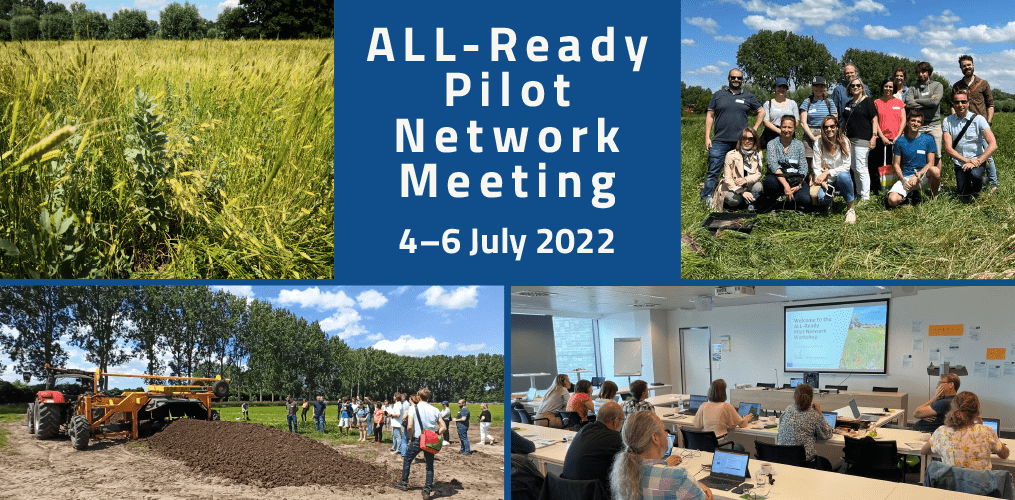
The ALL-Ready Pilot Network Meeting took place on 4-6 July 2022 in Ghent, including a Demonstration Day in Hansbeke. The meeting gathered the members of the Pilot Network and the consortium partners, in person and remotely. The meeting included an interesting discussion about how to operationalise the thematic working groups during the project and a learning roundtable about best practices for co-creation, involving stakeholders. On the second day, a workshop was organised for Work Packages 4, 5 and 6 to discuss 1) Why a European Network of Agroecology Living Labs and Research Infrastructure is important, 2) What competencies and skills a European Network can improve, and 3) How a Virtual Research Environment can support a European Network. The second day concluded with a ILVO Living Lab Agrifood Technology demo of their agro-ecological trial platform in Hansbeke – a great opportunity to experience how a #LivingLab operates and to learn how to improve soil quality based on low input use.
During the meeting, Iria Soto, LifeWatch ERIC Agroecology Project Manager, represented the infrastructure as a member of the Pilot Network, and José Manuel Ávila, LifeWatch ERIC Agroecology Coordinator, dynamised the workshop to validate the functionalities of the Agroecology Virtual Research Environment, which was already defined in the previous workshop, with the members of the Pilot Network.
ALL-Ready is a European-Funded H2020 project that aims to prepare a framework for a future European network of Living Labs and Research Infrastructures that will enable the transition towards agroecology throughout Europe. Based on the premise that agroecology can strengthen the sustainability and resilience of farming systems, the project will contribute to addressing the multiple challenges that they are facing today including climate change, loss of biodiversity, dwindling resources and degradation of soil and water quality. It is a Coordination and Support Action funded by the European Commission.
To learn more about the projects in which LifeWatch ERIC is involved, please visit the Related Projects page.